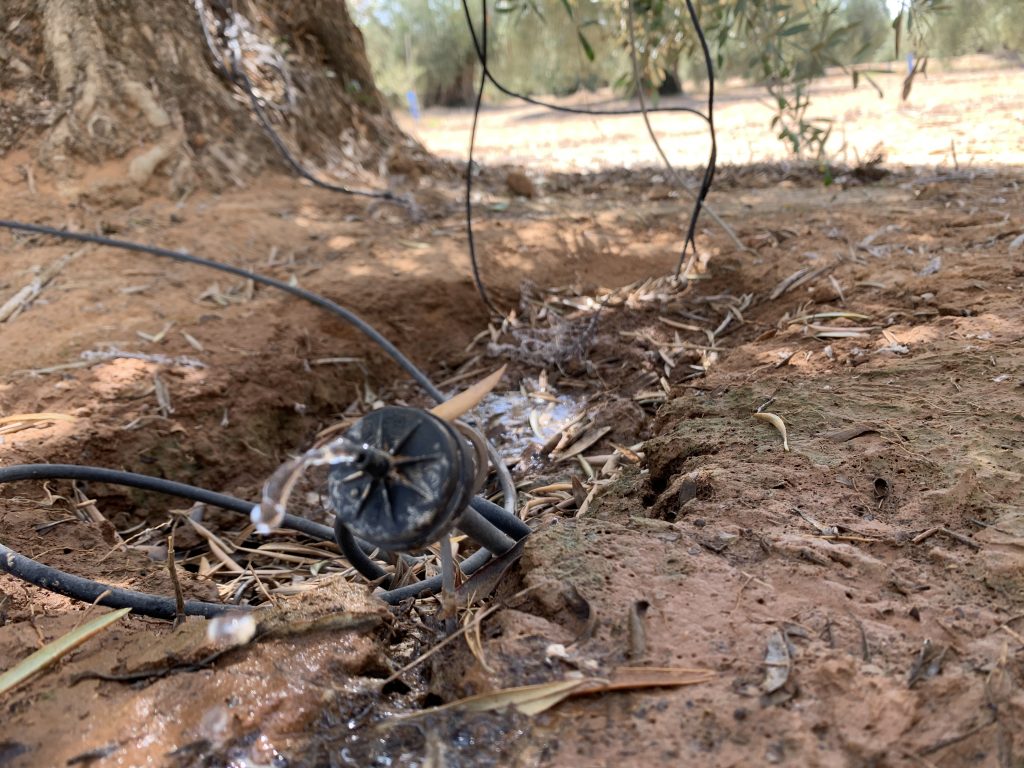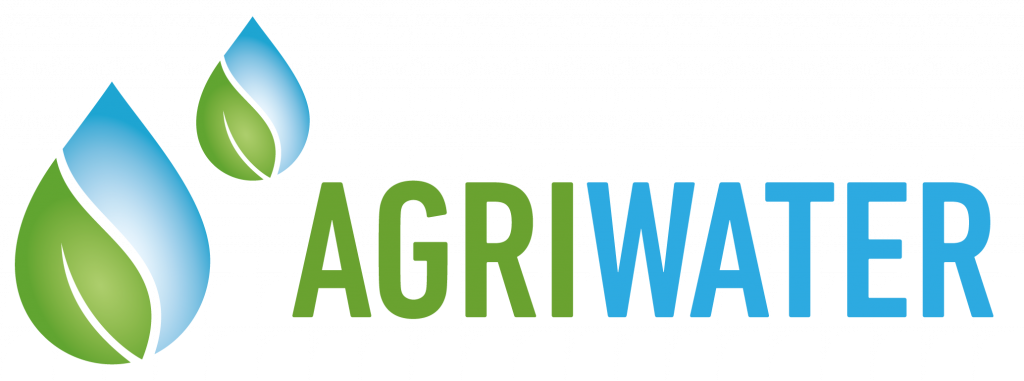Farm area/size of the organisation:
Number of workers:
Farm main activity:
The scarcity of water in the area, the sandy and poor soils, the cold and wet winters, as well as the proliferation of fungal diseases, made the farmer decide to install these sensors.
Irrigating more frequently and using less water, as well as anticipating the need for phytosanitary treatments, justify the implementation of this measure.
Great care must be taken during farming and harvesting not to damage the equipment or dig up the soil sensor.
Annually it is recommended to remove the underground sensors, clean them, and bury them again.
Through the web platform the status of the station (battery, radiation, etc.) can be monitored so that any problems can be identified.
If outsourced, no major skills are required, apart from the ability to interpret graphs of historical data recorded on the platform.
If it is to be built, knowledge of electronics and computer science is required. Soil, agronomic and agro-climatic knowledge is required for the interpretation of the data.
The change in the irrigation schedule has made more water available to the plant, reducing percolation and nitrate leaching.
Similarly, the intensity of groundwater abstractions is reduced, giving groundwater levels more time to recover at times of peak demand.
Social impacts can have a negative impact by increasing wage costs.
However, this must be compensated by the reduction of inefficient consumption (water and fuel used to extract it).
The change in the irrigation schedule has made more water available to the plant, reducing percolation and nitrate leaching.
Similarly, the intensity of groundwater abstractions is reduced, giving groundwater levels more time to recover at times of peak demand.
Social impacts can have a negative impact by increasing wage costs.
However, this must be compensated by the reduction of inefficient consumption (water and fuel used to extract it).
The digital recording of physical data through sensors is one of the fundamental premises of precision agriculture.
The integration of data loggers to manage this data and their mobile communication with web platforms for information visualisation is an innovation that helps farmers to make decisions (DSS).
Of course, the availability of the supplier’s technology and know-how is essential to adapt the equipment and design the DSS to the farmer’s needs.
For his part, the farmer must be predisposed and aware to undertake the investment and optimise his agronomic decisions by analysing the data obtained.
Many farmers are not aware of the soils they are working and the extent to which they must adapt irrigation schedule to avoid wasting water through percolation.
Lack of knowledge of the existence of these solutions, the cost of the equipment and the lack of awareness limit the dissemination of these technologies.
More efficient and less intensive use of groundwater helps to ensure the sustainability of the aquifer in the medium term.
Reducing percolation helps to reduce nitrate pollution of the subsoil.
In addition, it must be considered the reduction of emissions from mechanical energy sources, used for extraction.
There are two effects: on the one hand, we increase the efficiency of water use, reducing percolation and fuel consumption.
On the other hand, labour costs increase, as well as the cost of investment and maintenance of the equipment.
However, the net balance is positive if we consider the sustainability of the aquifer, guaranteeing the availability of uncontaminated water in the long term.
Precision agriculture must offer solutions for the future that enable better monitoring of farms and help to make decisions that optimise resources.
This is a case in which the use of sensors and the analysis of the information obtained has made it possible to change irrigation management, guaranteeing agro-economic and environmental sustainability.
The insights gained from this solution have allowed changing mental structures and working mechanisms.
The dissemination of the lessons learned is changing the way of working of other nearby farmers who are seeing the positive impacts of these changes.
Technological solutions have many utilities, sometimes each farmer must find out how such a solution meets his needs.
For this, it is essential that the user has curiosity, as well as the will to continuously improve and change things.


AGRIWATER project has been funded with the support from the European Commission, with the reference number 2020-1-CZ01-KA204-078212. The content of this website reflects the views only of the author, and the Commission cannot be held responsible for any use which may be made of the information contained therein.

At AGRIWATER we take the protection of your personal data very seriously. Our purpose is to protect the privacy of the data you provide us and to comply with the current regulations on the protection of personal data.
In compliance with the Act 3/2018 of 5 December on the Protection of Personal Data and Guarantee of Digital Rights transposing Regulation (EU) 2016/679, we inform you of the following information about our privacy and data protection policy:
The organization responsible of your data is Asociace soukromeho zemedelstvi Ceske republiky, ID E10133738. This is a non-governmental organization located in Prague, Czech Republic.
Address
Samcova 1177/1
11000
Praha 1
Telephone
+420266710413
+420266710414
Email contact
marketa.sandova@asz.cz
The legal basis for the treatment of your data is the consent of the data subject under article 6.1 a) of the Regulation, as well as the legitimate interest of the data controller under article 6.1 f) of the Regulation.
The data we request from you are adequate, relevant and strictly necessary and in no case are you obliged to provide them to us, but their non-communication may affect the purpose of the service or the impossibility of providing it.
Your data will be kept for the time required for the proper provision of the service offered, as well as to meet the responsibilities that may arise from it and any other legal requirement.
In the course of processing your data, Asociace soukromeho zemedelstvi Ceske republiky may share your data with:
On Projects Advising SL, as web management and maintenance service providers.
The controller retains the right to restrict the rights set forth in Article 23 of the EU Regulation, if such restriction is provided to safeguard, in particular fundamental rights and freedoms and is a necessary and proportionate measure.
If any interested party considers that their data are not being treated correctly, they can send their complaints to the following e-mail address; kristyna.strnadova@asz.cz, Asociace soukromeho zemedelstvi Ceske republiky.
The data subject declares to have acquired all this information.

A cookie is a file that is downloaded and executed on your computer, phone, or mobile device when you access certain web pages. Cookies allow a website, among other things, to store and retrieve information about user’s browsing habits and recognize the user depending on the information they contain and the way they use their computer.
Cookies do not harm your computer and are necessary to facilitate navigation.
Cookies are necessary for our website to work properly. The purpose of our cookies is to improve the user’s browsing experience. They can be used to remember your preferences (language, country, etc.) during navigation and on future visits.
The information collected in the Cookies also allows us to improve the website and adapt it to the individual interests of users, speed up searches, etc.
Analysis Cookies: These, if they are used properly by us or by third parties, allow us to quantify the number of users and thus perform the measurement and statistical analysis regarding the users’ usage of our service.
Advertising Cookies: These, if they are used properly by us or by third parties, allow us to manage as effectively as possible the supply of advertising space on the website, adapting the content of the advertisement to the content of the service requested or to the use you make of our website.
Our cookies do not store information about your personal identification, address, password, credit or debit card details, etc.
The information stored in the website’s cookies is used exclusively by us, apart from those identified below as “third party cookies”, which are used and managed by external entities to provide us with services to improve our own services and the user’s experience when browsing our website.
Third party cookies are mainly used to obtain statistics and to guarantee the payment operations are carried out.
Yes, firstly, you must disable cookies in your browser and, secondly, delete the cookies stored in your browser associated with this website.
You can restrict, block, or delete cookies from this website at any time by modifying your browser settings. This setting is different for each browser. For more details on the configuration of cookies in your browser, please consult your browser’s “Help” menu.
It is possible that some of the website’s features may no longer work if you disable cookies.
These Cookies are used to identify the user during the session, prevent the user from having to repeat authentication processes on the website, speed up some website processes, remember selections made during the session or on subsequent accesses, remember pages already visited, etc.
COOKIES
PURPOSE
DURATION
MANAGEMENT
User identification
They are used to identify and authenticate the user. They also contain technical data from the user session, such as connection timeout, session identifier, etc.
Session
AGRIWATER
Session identification
They identify the user’s http session. They are common in all web applications to identify requests from a user’s session.
Session
AGRIWATER
Navigation status
They help identify the user’s browsing status (login, first page, first access, scroll status, voting status, etc.).
Session
AGRIWATER
These Cookies obtain generic information about users’ accesses to the website (not the content of the same) to subsequently provide us with information about these accesses for statistical purposes.
COOKIES
PURPOSE
DURATION
MANAGEMENT
Google Analytics (__utma, __utmb, __utmc, __utmd, __utmv, __utmz, _ga…)
They allow website statistic’s tracking through the Google Analytics tool, which is a service provided by Google to obtain information about user access to websites. Some of the data stored is: number of times a user visits the website, dates of the user’s first and last visit, duration of visits, from which page the user accessed the website, which search engine was used or which link was clicked, from which part of the world the user accessed the website, etc. The information generated by the cookie about your use of the website will be directly transmitted and stored by Google Inc (a company located in United States). The configuration of these cookies is predetermined by the service offered by Google, so we suggest you consult the Google Analytics privacy page, for more information on the cookies it uses and how to disable them (keep in mind that we are not responsible for the content and accuracy of third-party websites).
Persistent
Third Parties